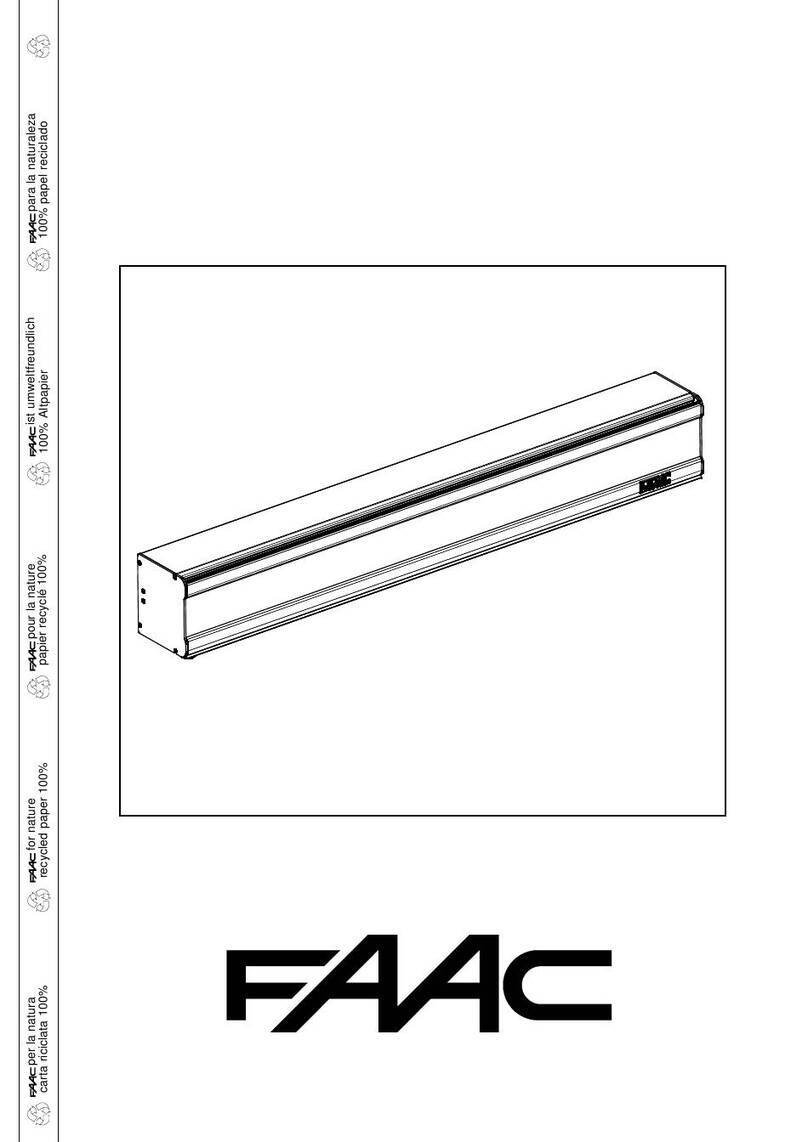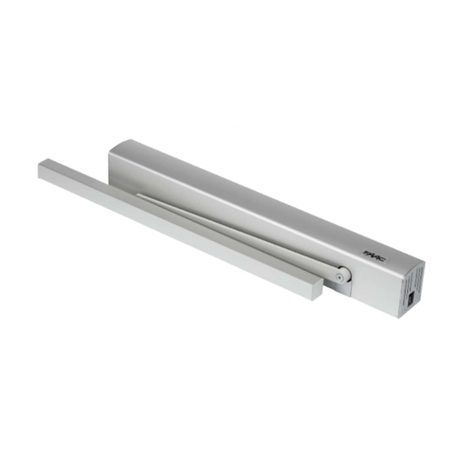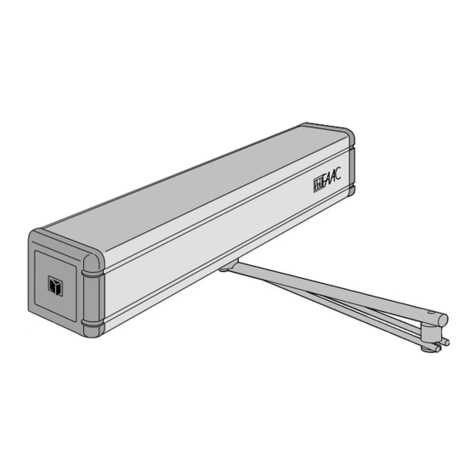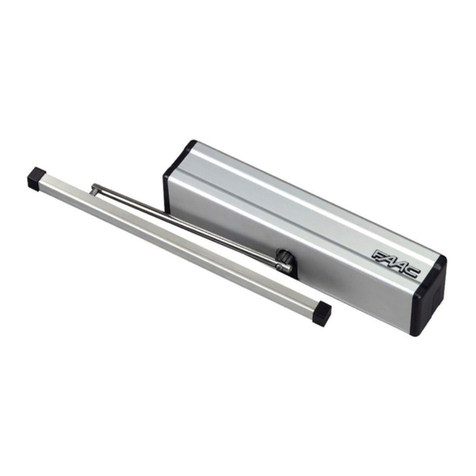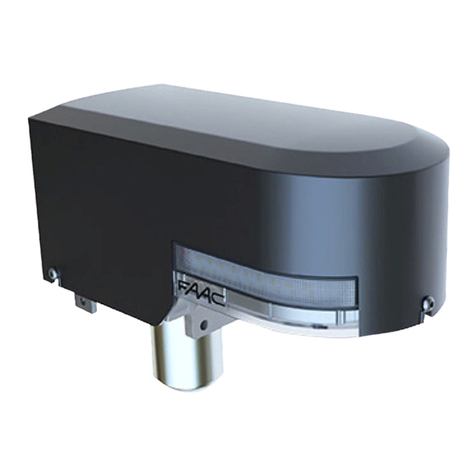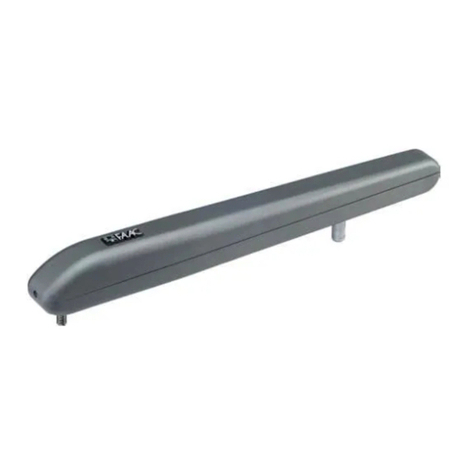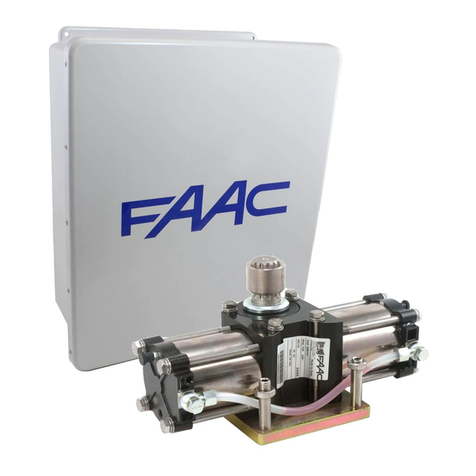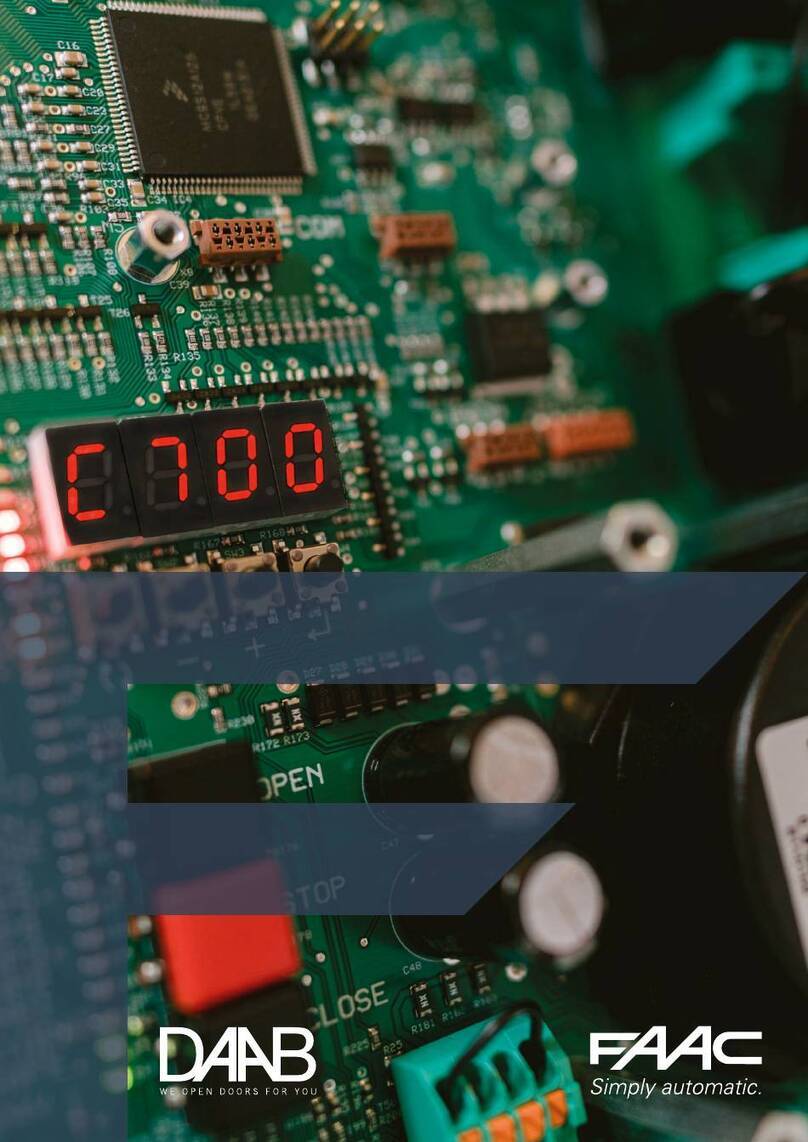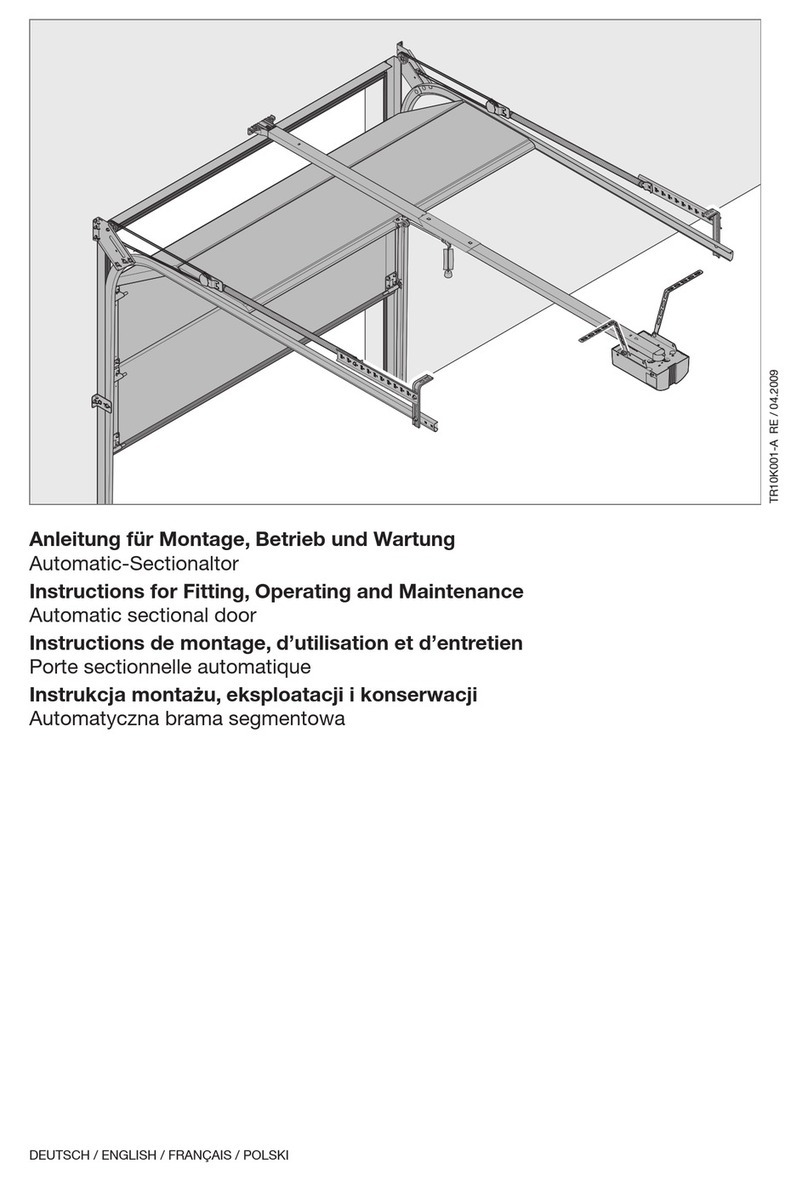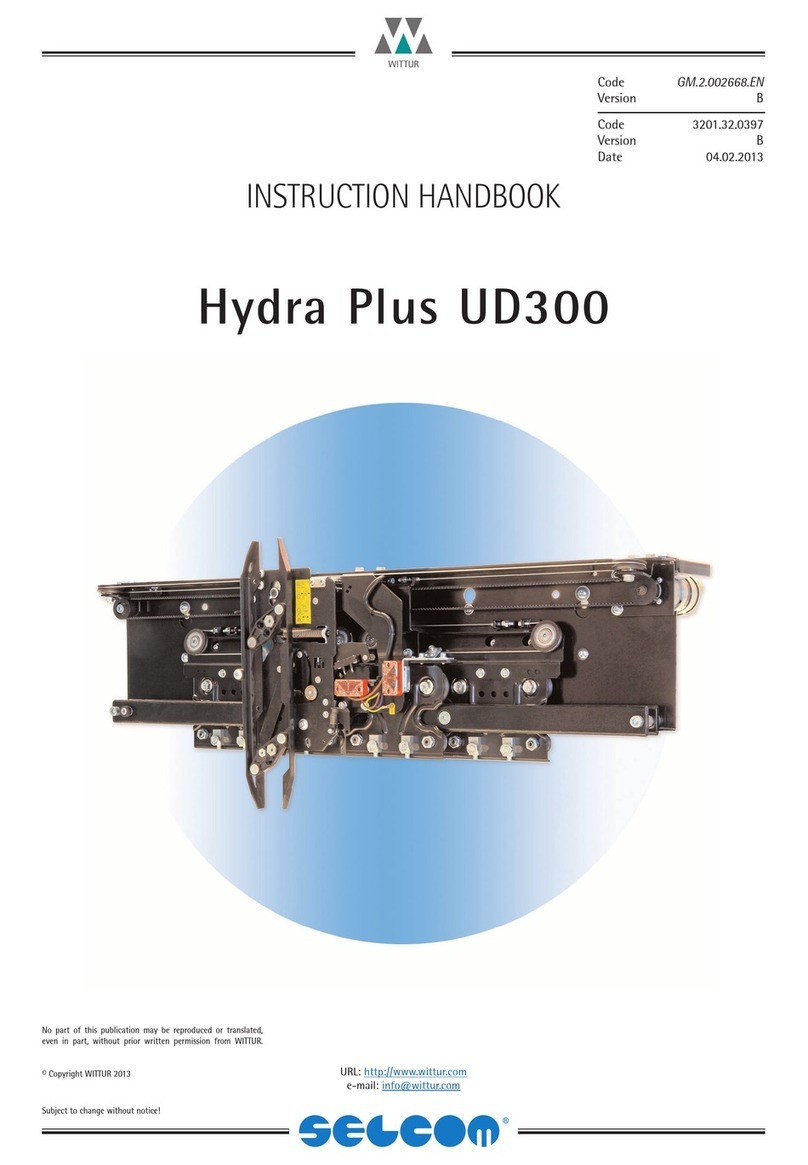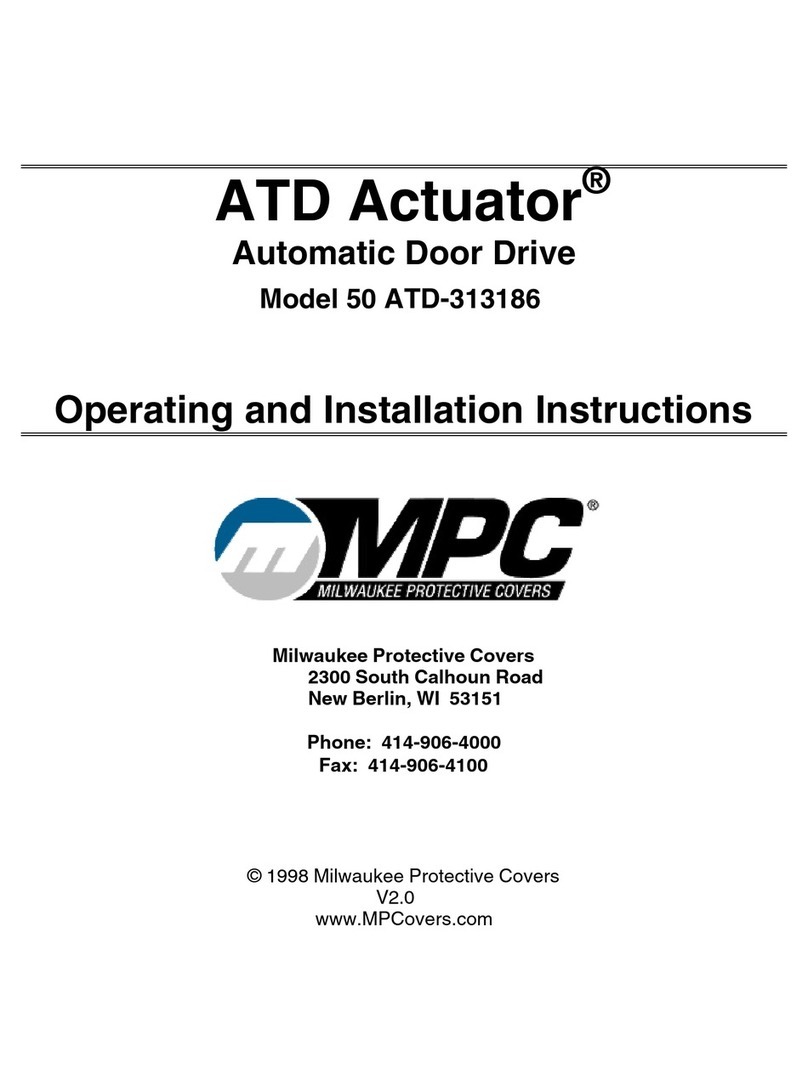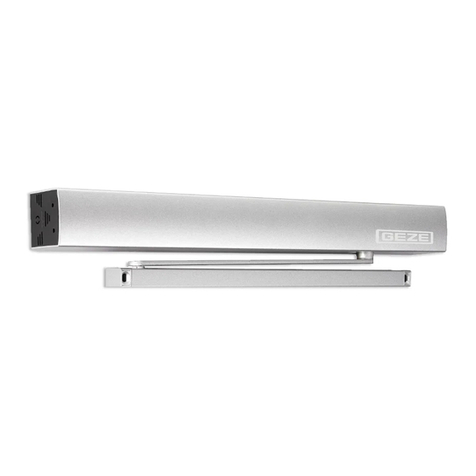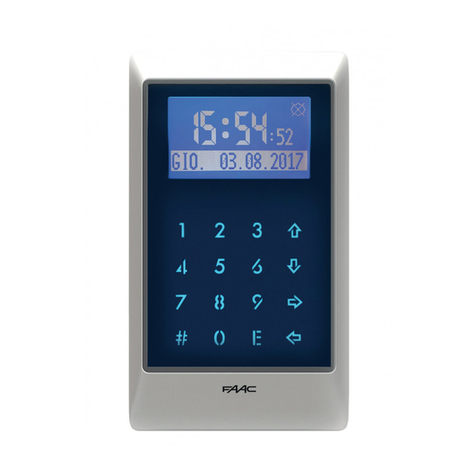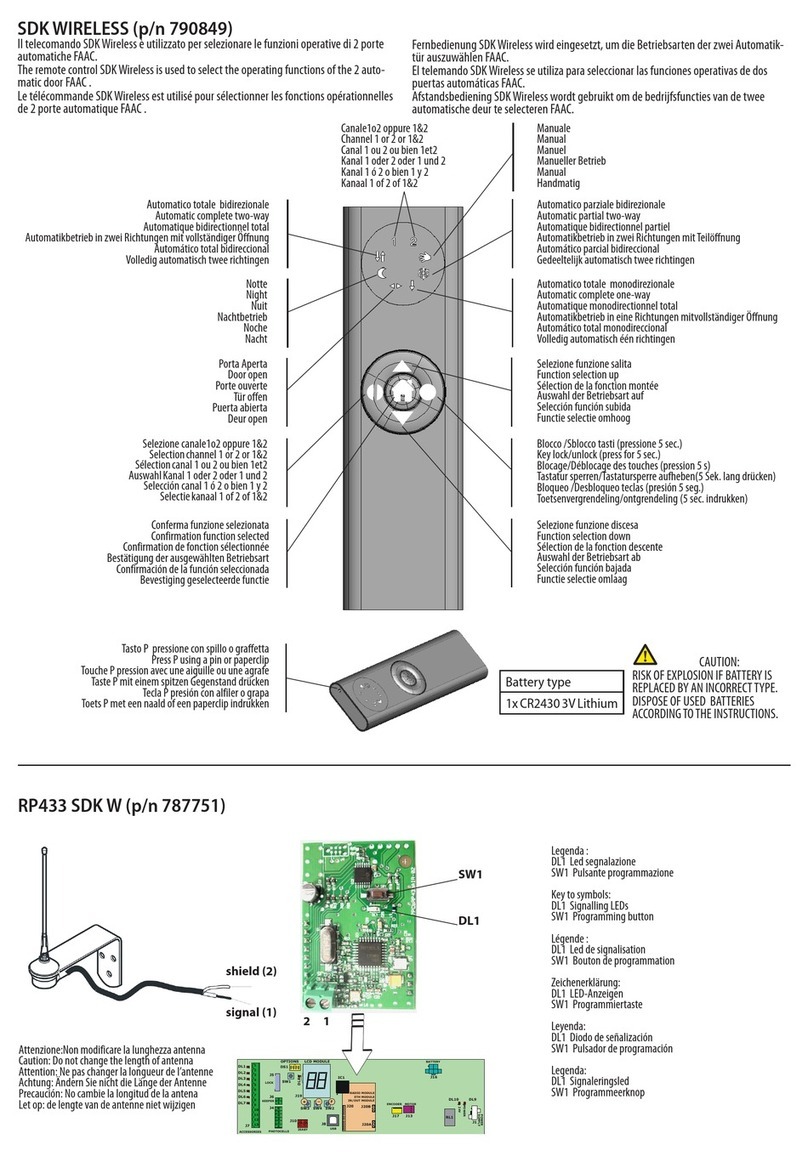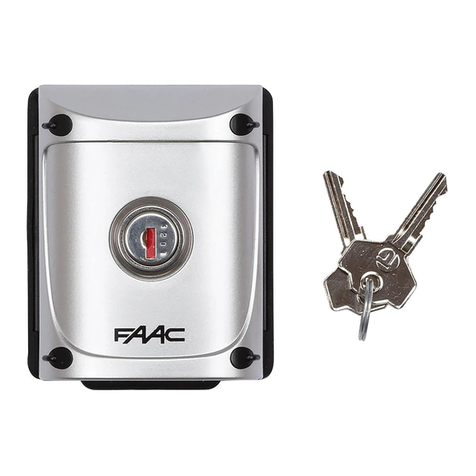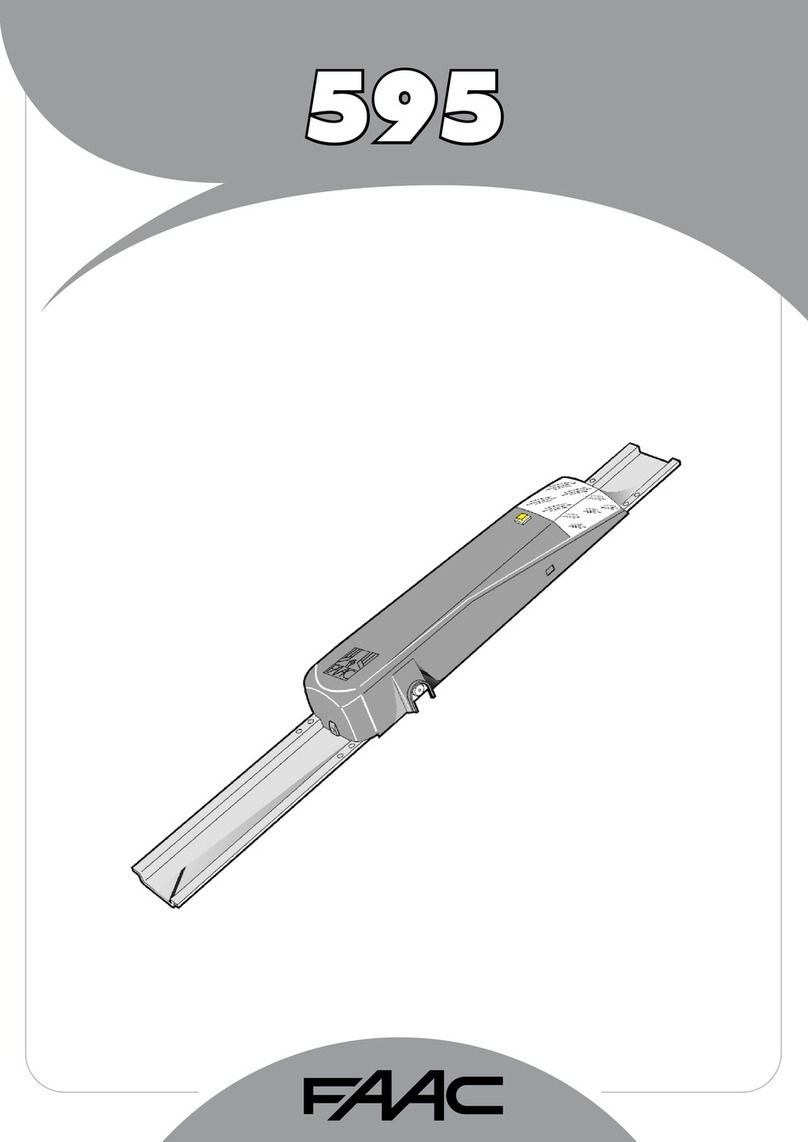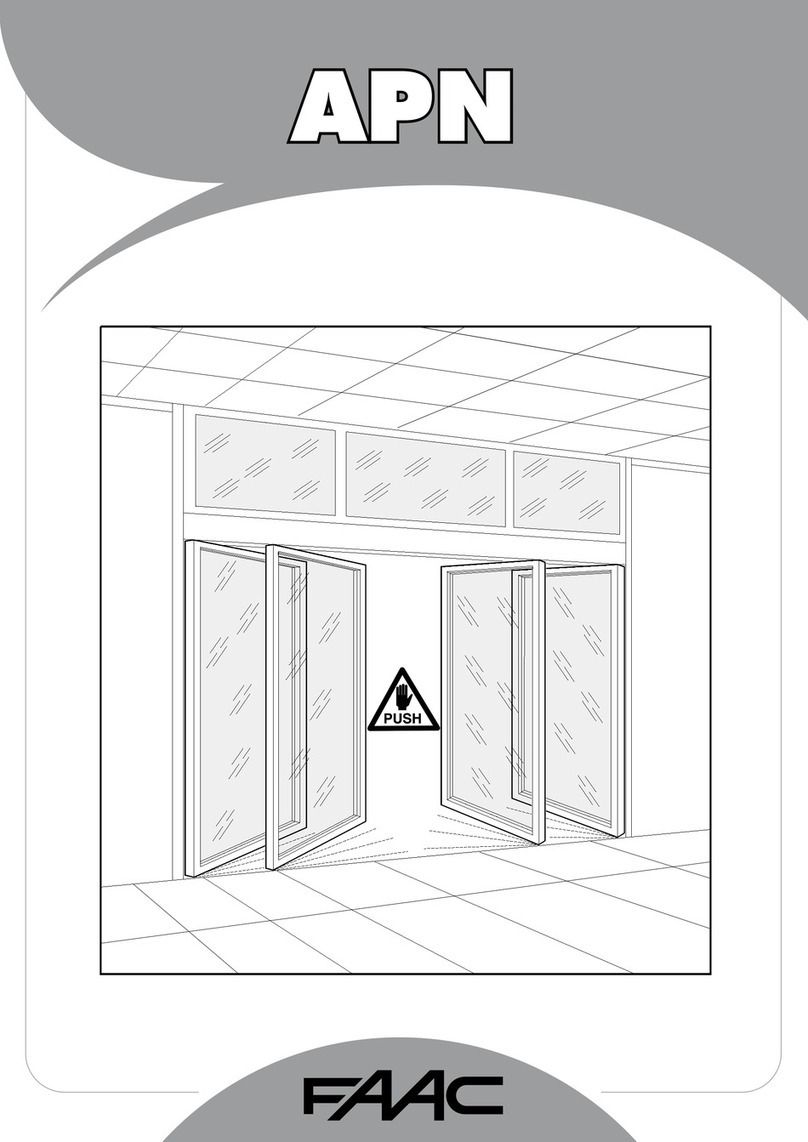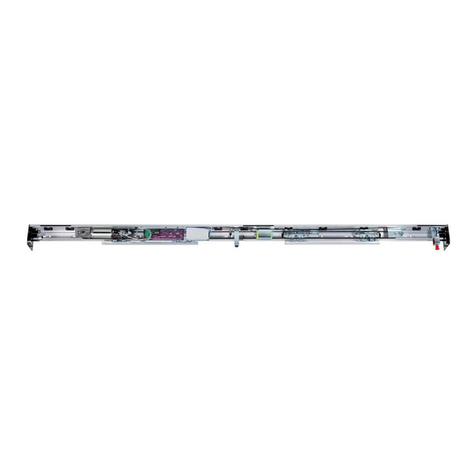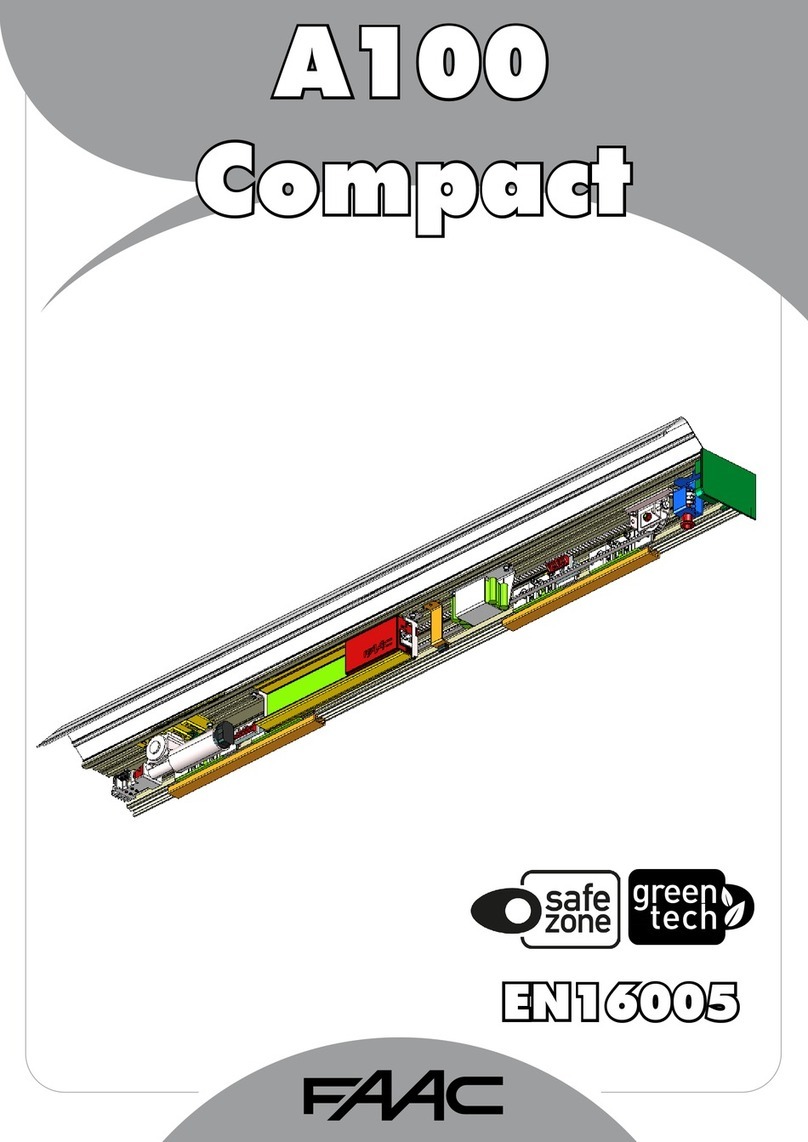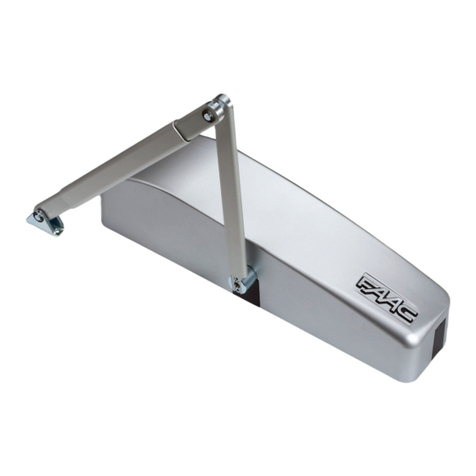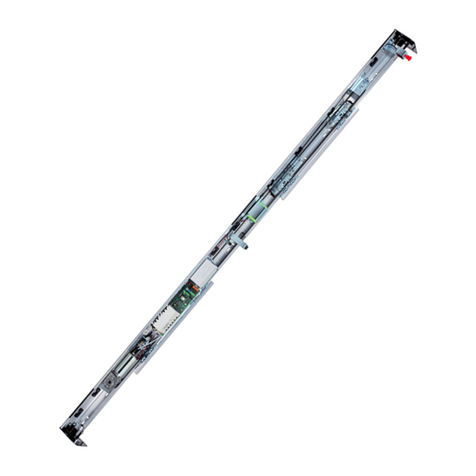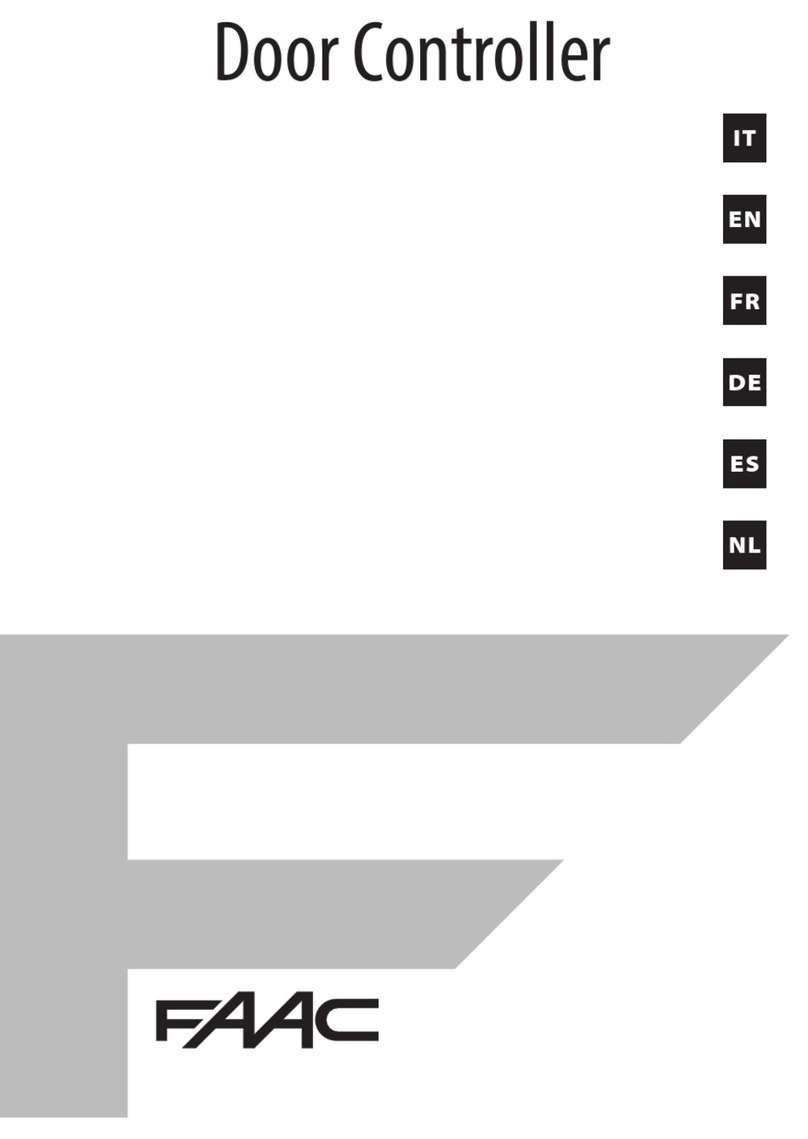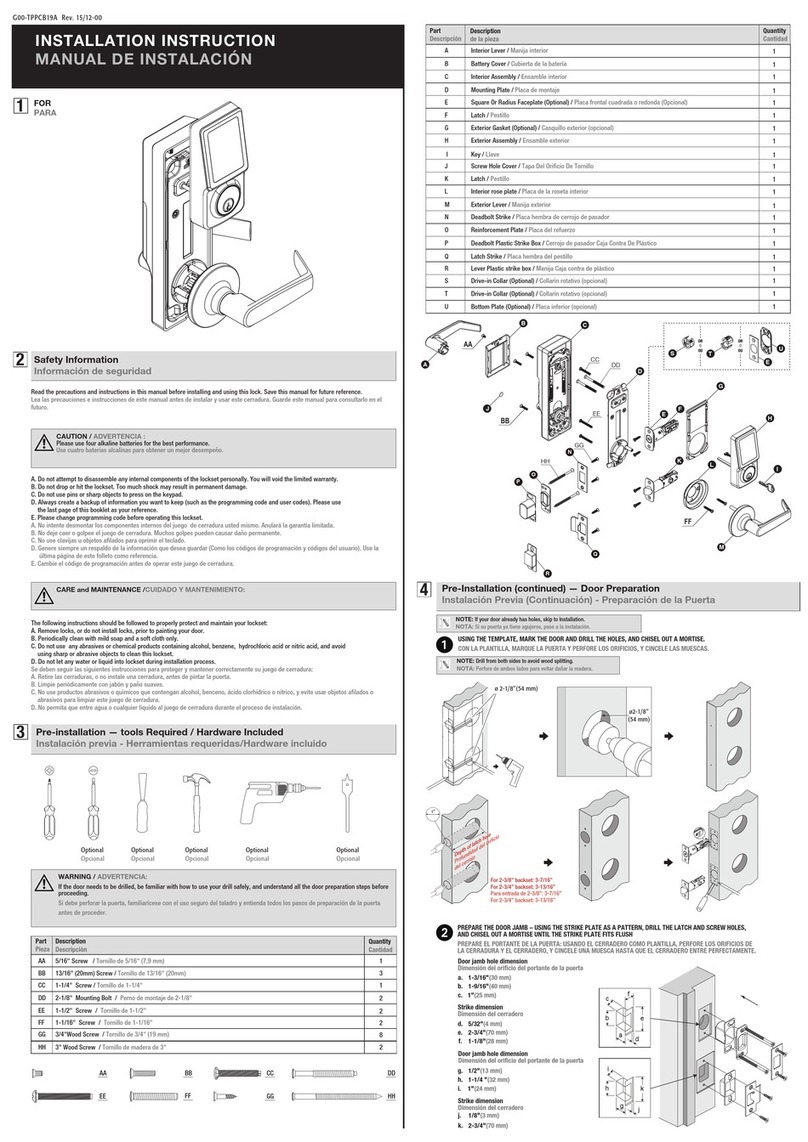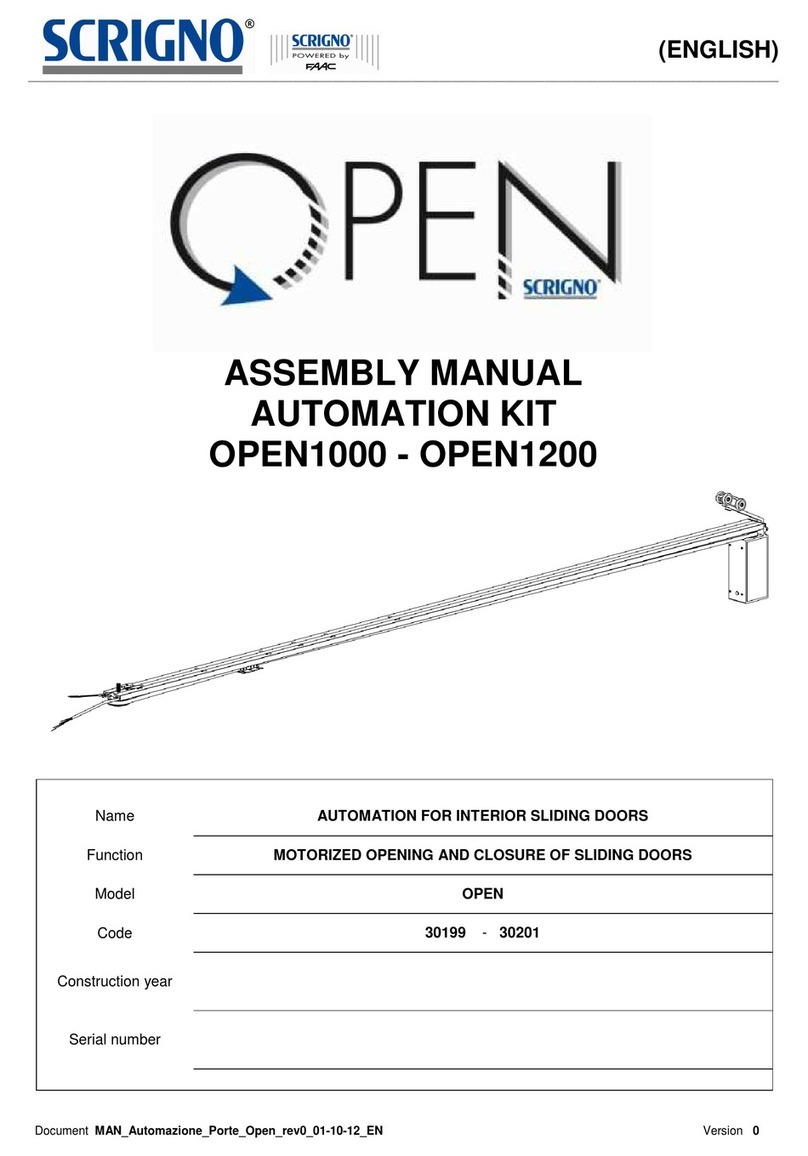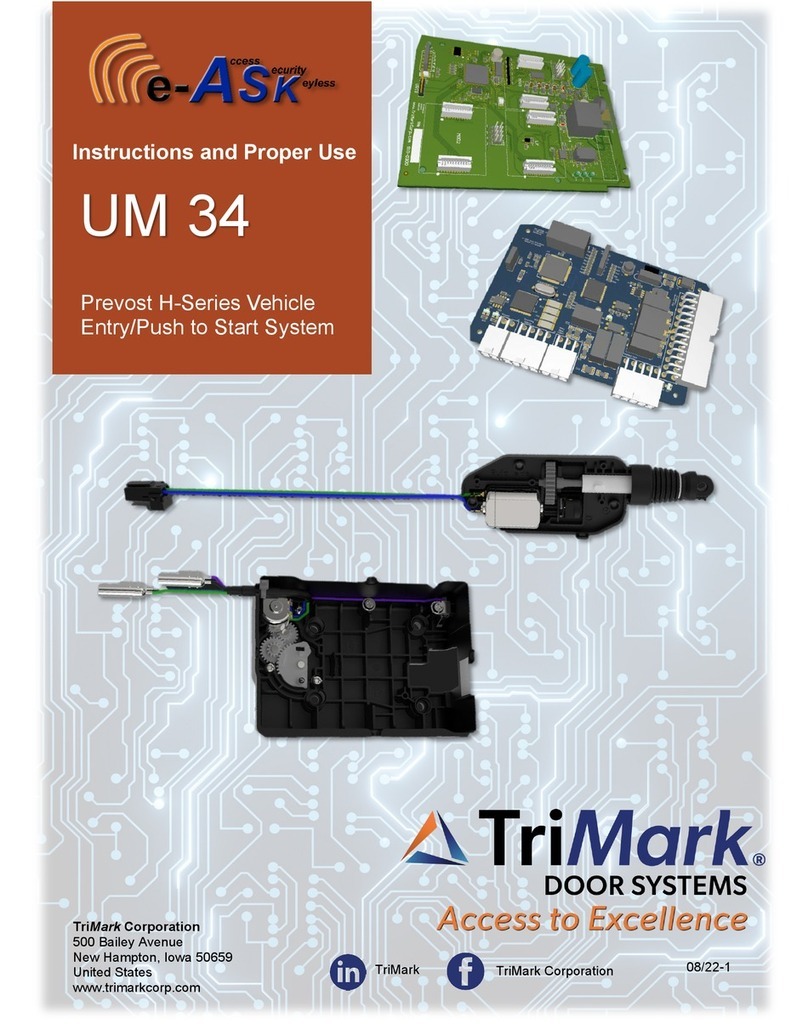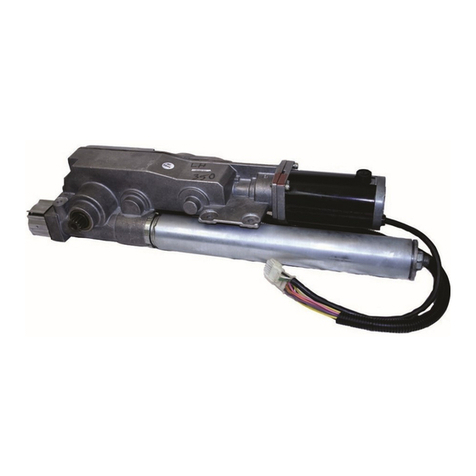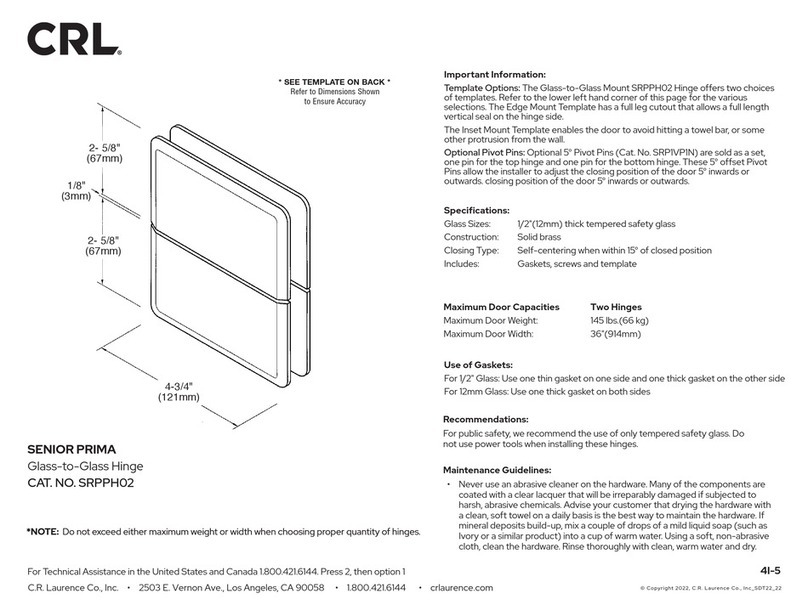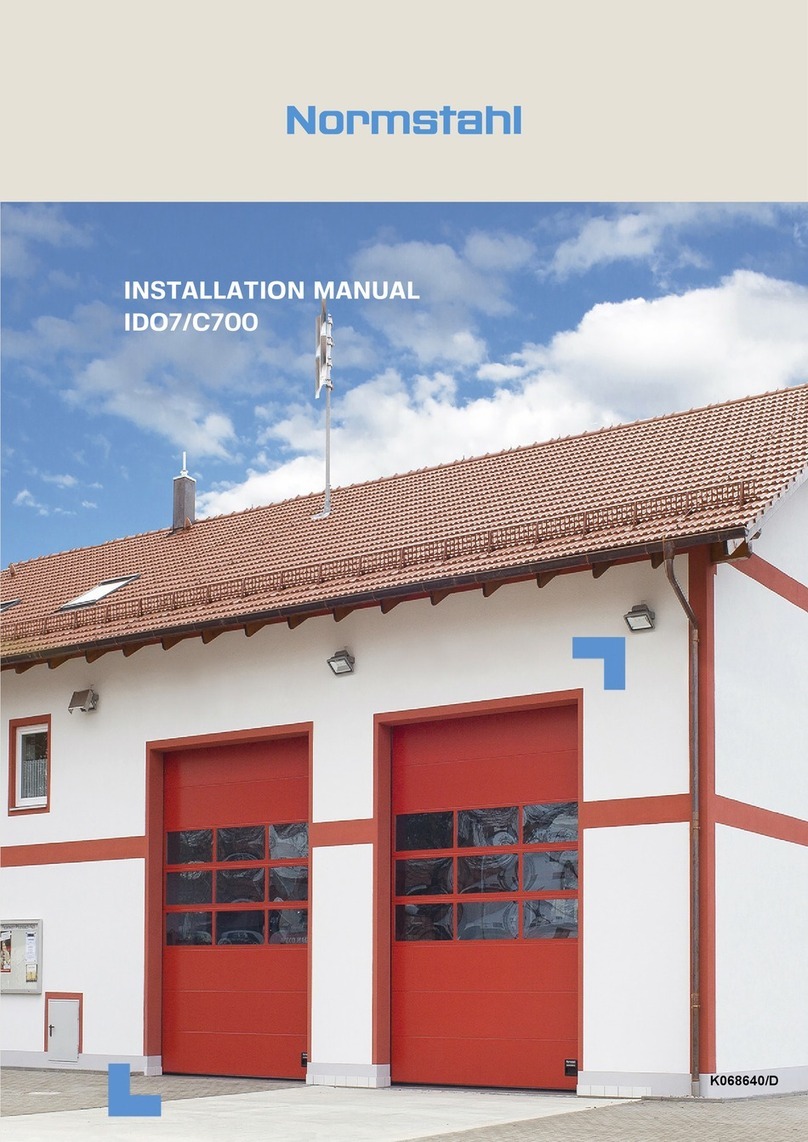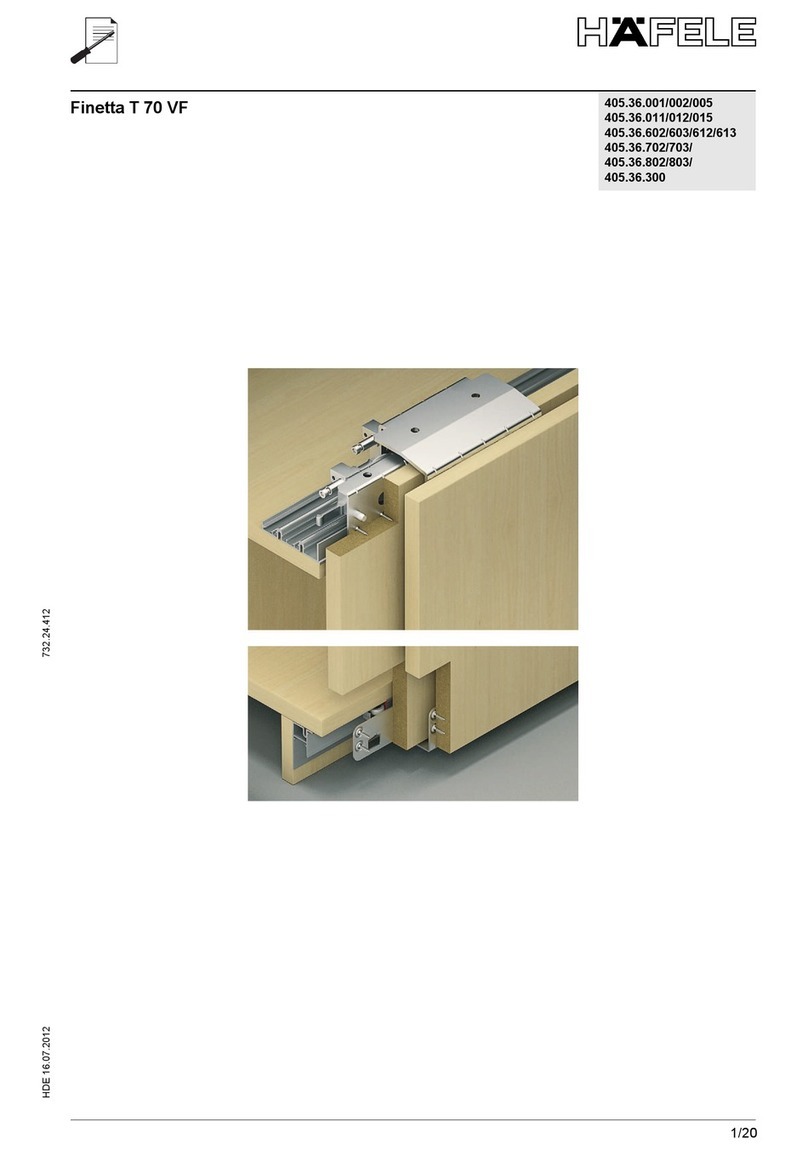
A1000 5 53221004 - Rev.A
Translation of the original instructions ENGLISH
CONTENTS
EC Declaration of conformity of a machine.................................... 3
EC Declaration of conformity.................................................................. 3
Declaration of incorporation of partly completed machinery4
Declaration of incorporation for partly completed machinery
4
1. INTRODUCTION TO THE MANUAL........................................................ 7
1.1 Safety recommendations ........................................................................... 7
Safety of the installer/maintenance technician........................... 7
Workplace safety ........................................................................................... 7
User safety......................................................................................................... 7
1.2 Meaning of the symbols used.................................................................. 8
2. AUTOMATION A1000 .................................................................................. 10
2.1 Intended use....................................................................................................10
Limitations for use......................................................................................10
2.2 Unauthorised use..........................................................................................10
2.3 Identification plate.......................................................................................11
2.4 Technical specifications A1000..............................................................12
2.5 Types of system supplied..........................................................................13
Installation according to the type of system supplied...........13
A1000 Automation components........................................................14
ACCESSORIES ................................................................................................15
3. INSPECTION AND PREPARATION....................................................... 16
3.1 Preliminary inspection..............................................................................16
3.2 Arrangement of electrical cables........................................................16
4. TRANSPORT AND RECEIPT OF THE GOODS................................ 17
Handle packages .........................................................................................17
Unpack and Handle....................................................................................17
5. CUTTING THE PROFILES ........................................................................... 18
6. ASSEMBLING THE HEAD SECTION.................................................... 19
6.1 Assembling the components .................................................................20
Mechanical stops.........................................................................................20
Electronics module.....................................................................................21
Safety cables and spacers.......................................................................22
Motor..................................................................................................................22
Return PULLEY..............................................................................................22
Motor release monitor..............................................................................23
Internal release.............................................................................................23
XB LOCK Motor block operation test................................................23
Cover drilling..................................................................................................24
Closed door monitor sensor..................................................................24
Emergency battery kit .............................................................................24
7. ASSEMBLING THE A1000 CS FRAME................................................ 25
7.1 Entry with TK50 profiles............................................................................25
Preliminary operations.............................................................................25
Assembling the frame ..............................................................................25
Fastening the fixed leaves ......................................................................26
Fixed leaves may be: .................................................................................26
Mounting mobile leaves ........................................................................26
Glazing installation.....................................................................................26
Assembly of the head section to the upper profile..................26
7.2 Entry door with TK20 profiles.................................................................26
Preliminary operations.............................................................................26
Assembling the frame ..............................................................................27
Mounting MOBILE LEAVES ....................................................................27
Assembly of the head section to the upper profile..................27
8. INSTALLING THE HEAD SECTION.......................................................28
8.1 Preliminary operations ..............................................................................28
8.2 Fastening to the wall...................................................................................28
9. INSTALLING THE LEAVES .........................................................................29
9.1 Mounting the lower shoes.......................................................................29
Shoe with TK50 bracket ...........................................................................29
TK50 Swivel shoe.........................................................................................29
Shoe with TK20 bracket ...........................................................................29
9.2 Mount profiles on the leaves..................................................................30
9.3 Mount the lower sweeper........................................................................30
Glass leaves.....................................................................................................30
9.4 Installing the leaves.....................................................................................30
9.5 Adjusting the leaves and carriages.....................................................31
Height of the leaves...................................................................................31
Depth of the leaves....................................................................................31
Counter wheel...............................................................................................31
10. INSTALLING THE GLASS LEAVES.....................................................32
10.1 Mounting the brushes.............................................................................34
11. ASSEMBLE THE BELT, CASING AND ACCESSORIES............. 35
11.1 Mounting the belt......................................................................................35
Adjusting the belt .......................................................................................37
11.2 Belt tensioning ............................................................................................38
11.3 Adjusting the mechanical stops.........................................................39
Stops on opening........................................................................................39
Single leaf closing stops..........................................................................39
Double leaf closing stops........................................................................39
11.4 Mounting the side profiles....................................................................40
11.5 Installing the casing brackets..............................................................40
11.6 Fitting the cover..........................................................................................41
11.7 Installing the XB LOCK Motor block.................................................42
11.8 Adjusting the XB LOCK Motor block ................................................42
11.9 Mounting the cable gland guides.....................................................43
12. ELECTRONICS INSTALLATION E1SL .............................................. 44
12.1 E1SL Electronic module.........................................................................44
E1SL Electronic board ...............................................................................44
12.2 Terminal boards and connectors .......................................................46
J1 J4 - INPUTS S1-S2...................................................................................46
J7 - INPUTS E1 -E2........................................................................................46
J8 - SDK EVO - LK EVO - KS EVO............................................................46
J9 - XFA button photocells .....................................................................46
J10 - Main power supply 36V - 4A......................................................46
J11 - Motor......................................................................................................47
J12 - Motor Encoder...................................................................................47
J13 - XB XM LOCKOCK/ 47 Motor block and monitoring
(OPTIONAL).....................................................................................................47
J14 - Emergency battery .........................................................................47
J17 - USB Port ................................................................................................47
J18 - INTERCOM............................................................................................47
J21 - Inputs i1-i2-i3-i4 .............................................................................47
J22 - Configurable outputs ...................................................................47
J23 J24 J25 - Optional modules...........................................................47
12.3 Motor and encoder ...................................................................................48
12.4 XB LOCK motor block and monitoring (OPTIONAL)...............48
12.5 XV1-XDT1 EXIT and entry detectors ................................................49
12.6 2 XDT1 Exit detectors and 2 XDT1 ENTRY detectors ...............50
12.7 XBFA Detectors for safety in OPENING ..........................................51
12.8 J9 - XFA button photocells....................................................................52
12.9 J7
- INPUTS E1 -E2
.....................................................................................
.....................................................................................
52
12.10 J22 - Configurable outputs.................................................................52
13. STARTUP............................................................................................................53
Preliminary checks prior to commissioning.................................53
13.1 Switching on and system SETUP .......................................................53
Checks following SETUP..........................................................................53
Saving the Configuration........................................................................53
13.2 Basic / advanced programming.........................................................54
